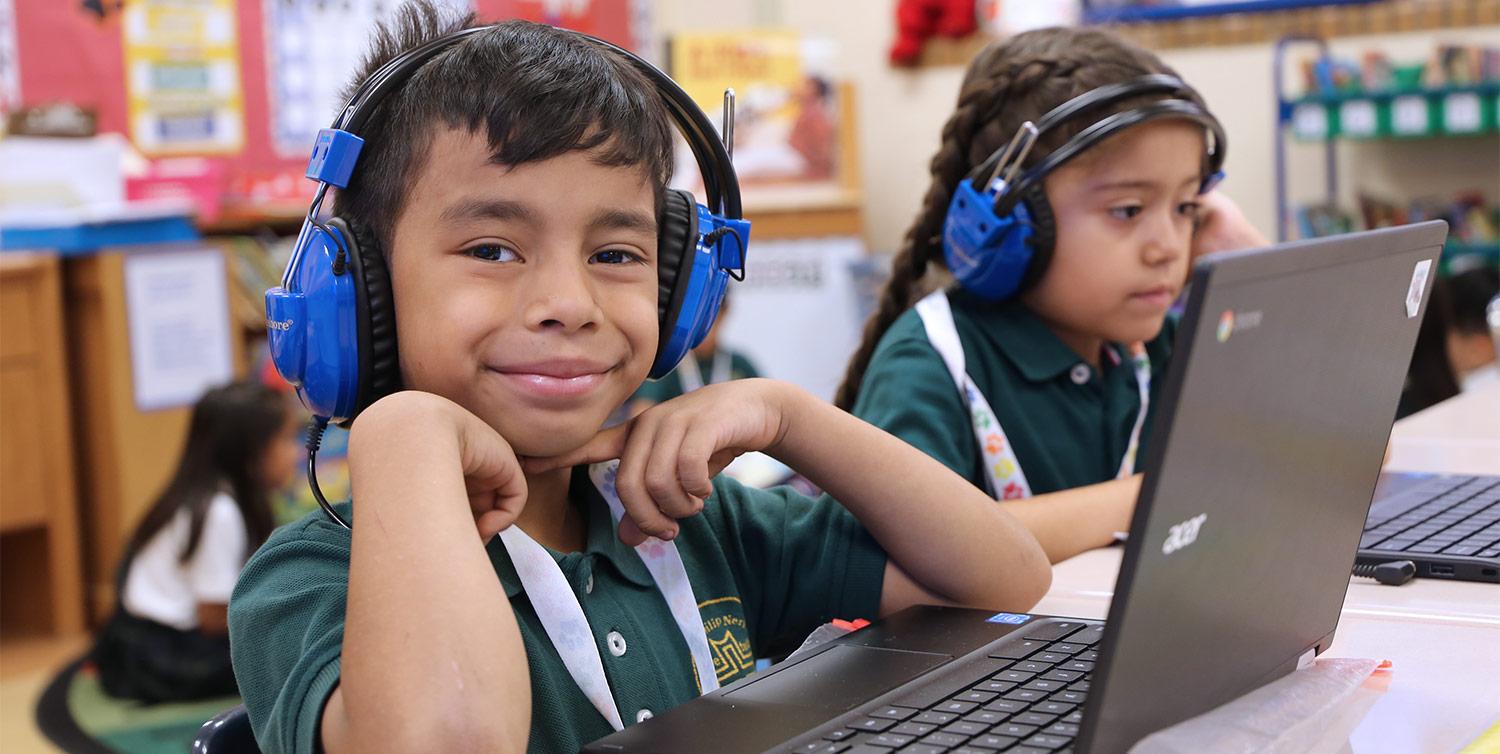Undoubtedly, the COVID-19 pandemic has posed significant financial challenges for our Catholic schools, especially those that serve some of our most vulnerable families and communities. As (arch)dioceses and schools navigate the Paycheck Protection Program, Governor’s Emergency Education Relief Fund (GEER), and Elementary and Secondary School Emergency Relief Fund (ESSER), we were able to connect with two Latino Enrollment Institute (LEI) mentors to find out about their experiences and how these funds might be leveraged to serve Latino students and families.
Overview
The Paycheck Protection Program is a $350 billion initiative included in the CARES Act passed in March. The PPP was recently replenished with an additional $310 billion. Catholic schools are eligible for forgivable loans through the program that may be used to pay up to eight weeks of salaries, insurance premiums, and other expenses. According to the Catholic News Service, only 35 percent of Catholic schools received funding through the Payment Protection Plan (May 2020). The U.S. Small Business Administration’s website is a helpful resource.
The Governor’s Emergency Education Relief Fund (GEER) and $13.5 billion for schools in the Elementary and Secondary School Emergency Relief Fund (ESSER) are both available to Catholic schools due to equitable services. LEAs are the main point of contact, and the bill breaks down the twelve uses of funding in a clear way. For our LEI schools, #4, #8, #9, and #11 might be particularly helpful.
LEI Mentor Insights
LEI Mentor Jocelyn Smith of Columbus, Georgia, provides insights into the processes of consultation, distribution, and services.
Insights into the consultation process:
LEA’s in Georgia have been instructed to reach out to private schools via “good faith efforts.” Those “efforts” were not well defined for us. Schools are not required to participate, and if a school declines or does not respond to the LEA’s “good-faith effort” to make contact, the LEA has no further responsibility to provide equitable services. The LEA is required to reach out even if a principal has declined title funds. LEA’s have until June 30 to submit all of their information, so the consultation process should begin soon.
For us, each school must complete an Intent to Participate using the online form. Especially given the realities of COVID-19, the consultation meeting does not have to take place in person. From here, both the LEA and school will complete and sign the Affirmation of Notification and Initial Consultation Form, and the LEA and school shall develop a mutually agreed-upon plan. Given the rapidly changing situation, I recommend seeing if any updates to the consultation process have taken place or changed.
Insights into the distribution process:
The LEA where the school is located is responsible for providing equitable services and controls the funds. Our directive was that the at-risk qualifiers that apply to regular federal title funding have been suspended for CARES Act funding. Currently, for us, students and teachers qualify for funding, and funding is not restricted based on poverty, student residence, or student achievement. Overall, the distribution amount is calculated like title funding, based on proportionate share. Again, for us, enrollment on March 5 for both public and private schools was used in the proportionate share calculation. Total enrollment calculation may or may not include PK enrollment, but I recommend asking your LEA. If public schools are allowed to use PK enrollment, Catholic schools are able as well.
Insights into services provided:
As with pursuing regular title funds, LEA’s hold the funding, and third parties will be paid directly from the LEA. Similarly, all materials, equipment, etc. purchased with the funds become the property of the LEA, not the school. In a meeting in May, the following CARES Act: ESSER Equitable Services Consultation Guide from the Georgia Department of Education was shared.
In this current situation, we are strongly considering use the funds in service to our Latino families in the following ways:
-
- translation of new policies, procedures, and outreach efforts
- teacher training for digital learning and working with ELs
- exploring summer digital programming
- creating libraries in both English and Spanish that can be sent home as needed
LEI Mentor Marianne Pelletier, Superintendent of the Diocese of Portland, Maine shares helpful resources:
Here in the Diocese of Portland, Maine, we are still working to attain access to these funds. Twenty states have determined the allocation is based on Title I funding. According to the Secretary of Education, the formula for allocation should be based on the proportionate share calculation. Here, we are determined to advocate for our schools and have filed a formal complaint with the state department of education and are looking to move to the federal level as needed. We remain hopeful.
I found an informative tool to be an NCEA sponsored webinar on the CARES Act that is currently available. I would suggest that each principal takes the time to tune into the webinar. In addition, I would highly recommend that all Catholic School leaders read a recent publication for NCEA (May 29): CARES Act and Private School funding Update.
In particular, for our Latino families, we are considering long-term closure needs such as meal distribution, lack of home technology and/or internet, copies of texts for home consumption, and computer applications for English learners. Adhering to the CDC guidelines, our back-to-school plan is taking into consideration Catholic identity, social-emotional learning, curriculum, safety, CARES Act funding, early childhood, parent outreach, financial projections, technology support, and teacher formation. We plan to look at each domain, among others, with a particular focus on the needs of our Latino students and families.
Overall, we pray that these funds provide relief. We would love to hear from you about how this funding has been helpful to your schools. Please email Katy Lichon at kwalter5@nd.edu with any updates.
 Alliance for Catholic Education
Alliance for Catholic Education
